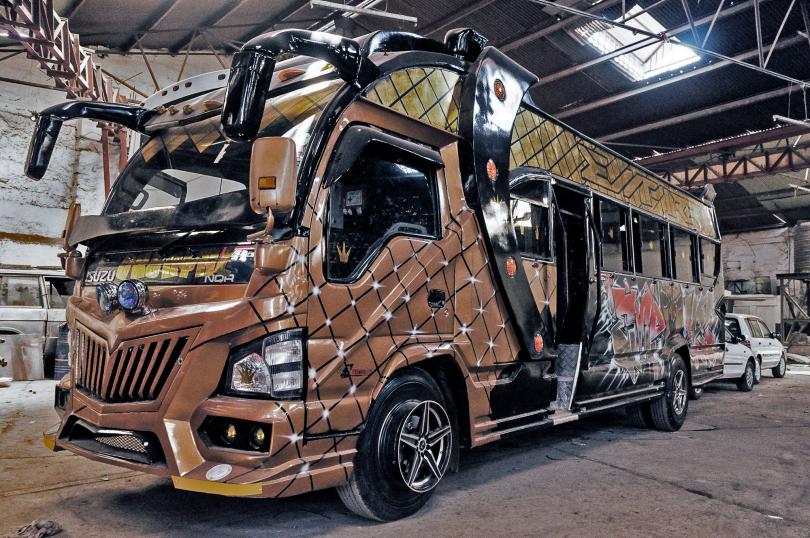
What President Uhuru Kenyatta may not have realised when he sanctioned the return of matatu graffiti was that this small window would undo all the gains wrought by ‘Michuki rules’ turning our roads into a graveyard of decency, sanity, discipline and common sense.
We human beings have the innate tendency to take advantage of small privileges to ask, or even forcefully demand for more. At first, the beneficiary rejoices at the generosity and sings ‘hail to the king.’ Naturally, the king feels good at the new found popularity. But since human greed knows no boundaries, they don’t stop there.
I wonder what NTSA would to about this #grafitti#KOT #transport #MatatuGraffiti #MatatuCulture via @OderoAlulu pic.twitter.com/9zOc4R0oPO
— KenyanTraffic (@KenyanTraffic) January 28, 2016
They stretch the boundaries a little further, to test the waters. If they meet only a little resistance, they go all out, completely abusing the goodness of the benefactor. The adage, “give an inch and they will take a mile” could not be truer in this case.
During the past few years, loud graffiti; high decibel noise in the name of music; unclassified videos; charged, if drugged, youth and a feeling of invincibility have become the defining features of the matatu industry.
Matatus have become little prisons for commuters who have to get to work in the morning and return home in the evening. It is a prison where there is no guarantee of getting out alive. Teenagers and other young people bid their time around the matatu stages waiting for “Thug Life”, “Schizophrenia”, “I am coming home”, “Lucifer”, “Devil with us” and other matatus with names inspired direct from Lucifer’s desk.

We have not only returned to the pre-Michuki days. We have gone a whole new level of rot aided by high youth unemployment and erratic enforcement by both the police and NTSA. Seat belts are all but gone, passengers are harassed daily by matatu gangs and the culture of silence among Kenyans has only emboldened the gangs and increased their numbers. If there is one word that aptly describes what is going on in the matatu industry, it is impunity. These people are a government unto themselves.
There are four things which no government should leave entirely to the private sector. The first is national security. The second is public transport systems and infrastructure development. Third is healthcare provision and the fourth is education and research.
This #MatatuGraffiti, creativity should not go to waste. Clamp down on loud exhaust noise but not on #MatatuCulture. pic.twitter.com/wCvJOjg9Er
— Ahmed Mohamed ((ASmaLi)) (@Asmali77) January 28, 2016
How the government came to hand over the entire road transport system to private players, among them cartels and criminal gangs, is mindboggling. Worse, the sector’s regulation is so weak that anyone can get away with any serious crime by making a few phone calls or handing out a few thousand shillings to an enforcement officer. The situation gets dicey when you bring in ‘untouchable’ matatus to the equation.

These are matatus which are apparently owned by well-connected individuals, their relatives or acolytes. Police officers who dare to hold these ‘special matatus’ to account risk being transferred to the border of Kenya and Somalia to ‘manage traffic’ there. They have therefore perfected the art of looking the other way when these matatus brazenly overlap.
The sector is driven by chaos and impunity. It profits from other people’s pain and blood. And whereas there is space for education and awareness, only a clear message from the top that mediocrity won’t be tolerated will curb the harvest of human lives.
Licenses revoked and gangs committed to long jail terms are the kind of newspaper headlines we need right now.